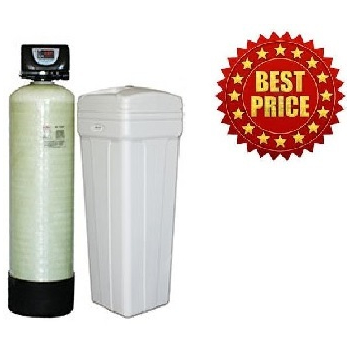
Water plays a vital role in our daily lives, from cooking and cleaning to bathing and drinking. However, not all water is the same. Many households deal with “hard water,” which contains high levels of minerals such as calcium and magnesium. Over time, hard water can create buildup in pipes, reduce the efficiency of appliances, and even leave stains on dishes and laundry. To address these challenges, many homeowners turn to water softeners. But how exactly do water softeners work? This guide breaks down the process and explains why they are so beneficial.
What Is Hard Water?
Hard water is water that has absorbed dissolved minerals, primarily calcium and magnesium, as it travels through soil and rock. While not harmful to health, hard water can be problematic in a household setting. It often causes limescale buildup in pipes, reduces soap lathering, and shortens the lifespan of appliances like washing machines and dishwashers. The harder the water, the more noticeable these issues become.
The Science Behind Water Softeners
A water softener is a device designed to remove the minerals that cause hardness. The most common system uses a process called ion exchange. Here’s how it works:
- Resin Beads – Inside the water softener tank are thousands of tiny resin beads. These beads are negatively charged and coated with sodium or potassium ions.
- Ion Exchange Process – When hard water flows through the resin tank, the calcium and magnesium ions are attracted to the beads and cling to them. In αποσκληρυντησ νερου exchange, the beads release sodium or potassium ions into the water.
- Softened Water – By the time the water exits the tank, the hardness-causing minerals have been removed and replaced with harmless sodium or potassium, resulting in “soft” water.
Regeneration Cycle
Over time, the resin beads become saturated with calcium and magnesium ions and can no longer soften water effectively. To restore their effectiveness, the water softener undergoes a regeneration cycle. During this process, a concentrated brine solution (salt and water) is flushed through the resin tank. The sodium or potassium ions in the brine force the calcium and magnesium off the beads, recharging them for the next cycle. The excess minerals and brine are then flushed out of the system, usually into a drain.
Benefits of Using a Water Softener
Installing a water softener provides several advantages:
- Prolonged Appliance Life – Soft water reduces scale buildup in appliances, helping them last longer and operate more efficiently.
- Cleaner Plumbing – Pipes remain free from limescale, lowering the risk of clogs and costly repairs.
- Better Soap Efficiency – Soft water allows soaps and detergents to lather more effectively, meaning you use less and save money.
- Brighter Laundry and Cleaner Dishes – Clothes feel softer, colors stay brighter, and dishes are free of streaks or spots.
- Improved Skin and Hair – Soft water is gentler on skin and hair, reducing dryness and irritation.
Types of Water Softeners
While ion exchange systems are the most common, there are other types of water softeners as well:
- Salt-Based Softeners – The standard system that uses sodium or potassium to soften water.
- Salt-Free Conditioners – These don’t remove minerals but instead prevent them from sticking to surfaces by altering their structure.
- Dual-Tank Systems – Designed for households with high water demand, these units allow continuous soft water supply even during regeneration.
Is a Water Softener Right for You?
The need for a water softener depends on your water hardness level. Many areas provide water quality reports that show hardness levels, or you can test your water at home. If you notice frequent limescale buildup, soap scum, or appliance inefficiency, a water softener could be a worthwhile investment.
Final Thoughts
Water softeners may seem complex, but their principle is quite simple: exchange hardness-causing minerals with harmless alternatives. This process not only improves water quality but also protects your home’s plumbing, appliances, and personal comfort. By understanding how water softeners work, you can make an informed decision about whether one is right for your household.
